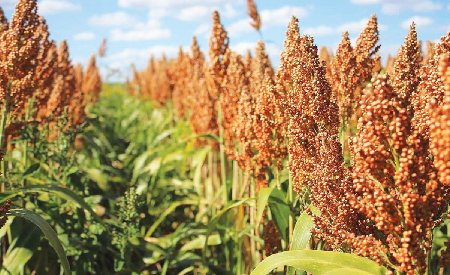
Ethiopia’s agricultural economy has always been based mostly on seeds due to its diverse environment and rich agricultural lifestyles. Crop resilience, productivity, and overall food security are all significantly influenced by seeds. Ethiopia has started a journey to strengthen its seed industry because it understands the value of high-quality seeds and needs to raise farmers’ incomes, assure food security, and improve agricultural production.
Over the years, Ethiopia has faced numerous challenges in its seed sector, including limited access to improved seeds, a lack of genetic diversity, and inadequate seed quality assurance systems. These challenges have hindered the country’s agricultural development and reduced farmers’ ability to cope with climate change, pests, and diseases.
According to Ethiopian Institute of Agriculture Research (EIAR) data, since the institute’s establishment, over 1,400 improved seed species have been distributed into the country, yet producers are only providing a small quantity of high-quality seeds. The greatest seeds haven’t spread throughout the country due to a farmer’s intelligence issue, informational gaps, logistical issues, a tendency to concentrate just on a few varieties of the best seeds, and a lack of resources. Furthermore, the seed program’s stakeholders stated that there is a gap in the structural structure.
Technology Multiplication and Seed Research Director with EIAR, Karta Kaske (PhD), told the Ethiopian Herald that although about 1.1 million quintals of quality seeds are produced annually on average, a relatively small proportion of farmers actually use these quality seeds out of all those who are engaged in agriculture.
Ethiopian Seed Association Board Chairperson, Melaku Admasu, stated on his part that the most significant hurdles facing the country are related to weather, land, infrastructure, foreign currency, security in
seed production areas, early generation seed scarcity, certified seed scarcity, inadequate information, and lack of awareness.
However, the Ethiopian government, in collaboration with various stakeholders, has taken significant steps to address these issues and promote the production and distribution of improved seeds.
According to Karta, the institute is taking a number of measures to address the issue and raise farmers’ knowledge of the importance of utilizing the improved seeds. Also, he stated that farmers in the area where the rallies took place are now more demanding that their crops be grown using the improved seeds. Among these activities, the institute created the EIAR-EGS improved seed marketing link platform, which has the potential to boost accessibility and overcome industry barriers.
Due to limited information access, only 50–56 percent of the improved seeds are being distributed up to this; this will significantly reduce the gap between production and dissemination of improved seeds, he added.
This link platform will allow participants in the improved seed marketing process to update the framework by addressing structural system gaps. Customers can request improved seeds directly through the user-friendly interface, which he stated addresses the issues of inadequate information and far-off infrastructure when it comes to improved seed supply.
He said the research institute’s goal is to close the gap between supply and demand by figuring out Ethiopia’s demand for improved seeds. Additionally, he mentioned that by using the EIAR-EGS link, customers may quickly verify the amount and kinds of improved seed availability and save time, money, and effort. Besides, the institute working on the link platform will eventually integrate regional agricultural research institutions and be able to provide customers with simple access to enhanced, improved seeds.
The EIAR-EGS link platform brings hope for improved seed access and addresses concerns about the survival of individuals relying on quality seeds for their agricultural endeavors, he remarked.
The use of improved varieties of seeds supports better production in the agricultural sector by resisting drought, acidic soil, and other issues associated with climate change impacts. For instance, if farmers use improved seeds, they can double their production; this will also ensure food security based on EIAR data.
This advancement has been made to boost farmers’ usage of the improved seeds and extend their access to them. Additionally, there is now a mechanism in place for individuals engaged in the race system to communicate their requirements and schedules ahead of time.
Ethiopia’s commitment to improving its seed sector is crucial for achieving sustainable agricultural development and ensuring food security. The establishment of the Ethiopian Seed Enterprise, engagement with private seed companies and NGOs, and the implementation of stringent quality assurance mechanisms have all contributed to enhancing the availability and accessibility of improved seeds.
Additionally, efforts have been made to enhance farmers’ knowledge and skills in seed management and conservation. Capacity-building programs, farmer field schools, and extension services have been implemented to educate farmers on best practices in seed selection, storage, and multiplication. This empowers farmers to become active participants in the seed sector, enabling them to save and exchange seeds, maintain genetic diversity, and contribute to the conservation of local seed varieties.
Furthermore, the Minister of Agriculture (MOA) advocates for increased access to seeds at all levels, from distribution to research organizations; extension services are offered; fertilizer and pesticides are made available; and regulatory services are rendered.
According to Melaku, researchers as well as development organizations are creating more effective seeds that are resistant to moisture stress and drought in an effort to combat the effects of climate change. In this moment, it is possible to employ early-maturing, moisture-tolerant corn and sorghum.
As to him, all relevant parties, such as public and private companies, are attempting to increase the amount and quality of seed supply by utilizing both domestic and foreign technologies, as seed is a crucial input for agricultural output. The government has recently updated the Seed Proclamation, granted plant breeders’ advantages, and approved contract farming in an effort to draw in both domestic and foreign seed enterprises.
According to Karta, the institute is attempting to provide producers with as much information as possible early to eliminate confusion regarding the availability of the best seeds, and farmers should become more knowledgeable through acquiring information about new types as well as enhancing their skills to adapt to improved seeds.
He further stated that in order to develop and market the best seeds, private investors and interested parties should collaborate with the research institute.
By investing in seed research, farmer education, and conservation efforts, Ethiopia is building a resilient and vibrant seed sector that can support the country’s agricultural growth and empower its farmers in the face of emerging challenges.
BY FIKADU BELAY
THE ETHIOPIAN HERALD TUESDAY 19 DECEMBER 2023




